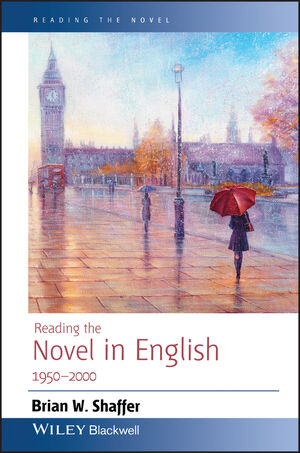|
Textbook
Reading the Novel in English 1950 - 2000ISBN: 978-1-4051-0114-1
Paperback
256 pages
November 2007, ©2007, Wiley-Blackwell
 Other Available Formats: Hardcover
|
||||||
“Shaffer provides an informative and contextualizing
introduction that deals with issues of form and the shift from the
‘English novel’ to the ‘novel in English’
that was an important change in English literary studies over the
period covered. The book is written in an accessible style that
reflects its status as an introduction to the fiction of the
period. The novels are well chosen, take an international focus,
and provide a representative snapshot of fiction in English over
the period … .There is a sensitive reading of each novel that
takes into account the historical and cultural contexts informing
them. Taken all in all, the book is a good introduction to the
period and thus achieves what it sets out to do.” (Year's
Work in English Studies, 2008)
–Philip Tew, University College Northampton; Director, UK Network for Modern Fiction Studies
“This is a main theme to a comprehensive study of ten novels: Kingsley Amis’s Luck Jim; William Golding’s Lord of the Flies; Chinua Achebe’s Things Fall Apart; Muriel Spark’s The Prime of Miss Jean Brodie; Jean Rhys’s Wide Sargasso Sea; J.M. Coetzee’s Waiting for the Barbarians; Margaret Atwood’s The Handmaid’s Tale; Kazuo Ishiguro’s The Remains of the Day; Patrick McCabe’s The Butcher Boy; and Graham Smith’s Last Orders…[Reading the Novel in English 1950-2000] is an asset to anyone who teaches any of these novels.” (English Literature in Transition 1880 – 1920)
“This is an excellent introductory study, consisting of a series of essays concerning various important Anglophone novels from the period of the post-war to the present day. The selection of texts is intriguing. The volume is well-informed by criticism of the field and Shaffer’s close reading is exemplary. His interpretations cast fresh light on some novels that have become canonical and therefore this study is of great use to students generally and for those teaching them.”–Philip Tew, University College Northampton; Director, UK Network for Modern Fiction Studies



